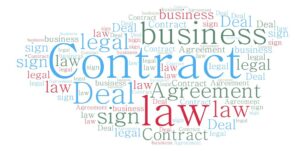Posts by Victoria Strauss
This is a question that sometimes comes up when I do interviews. Writer Beware has been in operation for more than 25 years, yet it’s still so busy. There seem to be so many scams that target authors. Are writers somehow more vulnerable to fraud than other creatives?
In my opinion, no.
Writing scams aren’t unique. There are similar frauds in every creative industry. Headshot scams for models. Talent agency scams for actors. Representation scams for illustrators. Pay-to-play venues for musicians and artists. They may not be as numerous as writing scams, but they are widespread, and they use the same tricks and techniques to lure and ensnare victims.
WHY ARE THERE SO MANY WRITING SCAMS, THEN?
Because (again in my opinion) there are so many writers.
Other creative pursuits have boundaries and requirements that create bars to entry. Musicians need training, not to mention instruments. Actors and singers may have limited venues in which to practice their craft: there isn’t a casting call around every corner. Painters and sculptors need often-costly materials. Models must conform to various standards of physical appearance–much broader these days than in the past, but still restrictive.
But writing: writing is just words. Everyone has those. If you can speak, you can write, and all you need to follow your impulse is an idea and a computer, or pen and paper if you prefer.
Whether you should or not is a different question. But the accessibility of writing, along with the universal human desire for self-expression, inspires vast numbers of people to create a story or a poem or a book. And what good is a story or a poem or a book without readers?
As recently as two decades ago, the difficulty of getting published presented the kind of limiting factor that exists in other creative pursuits. But while there are still considerable barriers for traditional publishing, the digital revolution has created multiple publishing options that bypass the gatekeepers and make it possible for pretty much anyone to get their work out into the world.
The readers, though. That’s the challenge. In an ocean of other authors, a sea of books and stories, how does your reader find you? With so many writers asking that same question, it’s a ripe opportunity for scammers.
ALL CREATIVES ARE VULNERABLE TO SCAMS
If the bar to the practice of writing is lower than for many other creative pursuits, the barriers to success and recognition are just as high. Anyone can write and publish a book, but far, far fewer manage to make a career of it. Where desire is strong and success is an outlier, scammers cluster at the gates–and that’s true of all creative industries, not just writing.
Creatives’ vulnerabilities aren’t unique, but they are acute. Scammers set traps accordingly.
The lure of the shortcut.
Climbing the ladder of success is hard work. Scammers and opportunists purport to offer a way to succeed without putting in the labor, claiming they can cut through red tape, skip the middlemen, get you and your work directly to decisionmakers without the necessity of all the tedious steps and tasks you’d have to undertake on your own. Of course, such shortcuts don’t exist (or if they do, very few have access to them). But creatives want them to, especially if they’ve […]
Read MoreWriters often ask me why, with all of Writer Beware’s warnings about bad actors in the publishing world, we don’t also provide recommendations or endorsements of the good guys. “You’ve got this gigantic list of scammers on your blog; wouldn’t it also be helpful to recommend reputable agents and publishers?”
There are several reasons why we don’t do this.
Writer Beware has a very specific purpose: to document and expose schemes, scams, and pitfalls that target writers, and to educate authors on how to recognize and avoid them. As far as we know, we’re the only organization with this exclusive mission. In other words, we aren’t a general-purpose resource: we are quite narrowly focused. We are also a small, all-volunteer team, with limited time and resources.
Also, one size does not fit all. Agents, publishers, etc. have widely varying areas of interest and expertise, and the best agent or publisher or freelance editor or cover designer for one writer might be the worst choice for another. Lists of “good guys” won’t necessarily be very useful, depending on what you write and what your publishing goals are (not to mention, they are incredibly time-consuming and research-intensive to compile and maintain; did I mention that Writer Beware is a small team?). It really is better for writers to do their own research and vetting, armed against scams and bad practice with the tools and knowledge Writer Beware provides.
Finally, recommending or endorsing any particular publishers, agents, etc. risks raising questions of conflict of interest. How do you know, one of Writer Beware’s many haters might inquire, that the agents on that “good guy” list didn’t pay to be there? Of course this would not be true—Writer Beware doesn’t even accept charitable donations—but we want to avoid all possibility of such questions arising. (This is why, when scammers want to discredit us, they have to make stuff up—such as that I own my own publishing company and am badmouthing competitors).
So I can’t suggest which agents to query, which publishers to approach, which self-publishing platforms to consider. What I can do is try to cut through some of the fog and noise of the internet by recommending reliable resources to help with your publication journey. The internet is a goldmine of information for authors, but it is also a swamp of fake facts, bad advice, and scams—and it can be very difficult to figure out which websites are reliable and which experts are actually experts.
Following are a few of my favorite online resources. Some you’ll no doubt already be familiar with, but hopefully you’ll also discover something new. (And of course Writer Unboxed would be on the list, if I weren’t already here!) Most of the resources are free, but some require subscription or a membership fee. Writer Beware receives no consideration or compensation for mentioning them.
GENERAL RESOURCES
The Writer Beware Website. http://www.writerbeware.com/ The Writer Beware blog is WB’s most high-profile online presence, but many people don’t realize that we’re also a very large website. While the blog covers scams and publishing industry issues in real time, the website is a resource for general advice and warnings, designed to empower writers to recognize and protect themselves from schemes and […]
Read MoreYou’ve chosen a publishing service, engaged a marketing company, entered a writing contest, hired an editor, inked a representation agreement, or contracted with a publisher, hybrid or traditional.
You’re aware that there are no guarantees: your book won’t necessarily become a bestseller. Your story may not win the contest prize. Your agent may not find a home for your manuscript. But your expectation is that the person or company will keep their promises, adhere to timelines, deliver acceptable quality, and generally honor whatever contract or agreement you both have signed.
What if they don’t, though? What if, after paying out a lot of money and/or waiting in vain for a service to be completed and/or receiving a product too shoddy to use, you realize you’ve been conned? What are your options? What can you do?
This is one of the most frequent questions I receive at Writer Beware. It’s one of the hardest to answer, because the difficult truth is that there often is little recourse, especially if a lot of time has passed or the perpetrator is operating from a different country.
But it’s definitely not hopeless. There are actions you can take. Below are some suggestions.
GETTING YOUR MONEY BACK
Scammers generally don’t do refunds (never mind the money-back guarantees that many promise). You can certainly ask: it’s a reasonable starting point. Just be prepared to be refused, or promised a refund that somehow never arrives.
A more direct method, if you paid with a credit or debit card or via PayPal, is to dispute the charges. This doesn’t always succeed: if some degree of service was delivered, even incomplete and/or of poor quality, the decision may go against you. However, I’ve heard from many writers who’ve been able to get some or all of their money back this way.
You do need to be prompt. There’s a limited window to file disputes–which rules out situations where the scam only becomes apparent over a longer period of time (although, from personal experience, credit card companies will sometimes honor disputes beyond their deadlines if you can make a strong enough case).
Wire transfers, unfortunately, generally can’t be reversed: they are treated like cash transactions (which is why they’re popular with scammers). Payments via apps like Zelle or Venmo are also difficult or impossible to reverse. If you paid a scammer using these methods, contact your bank and ask them to place a fraud watch on your account.
If you used a credit or debit card, you should also consider contacting any one of the three […]
Read MoreRecently, a writer contacted me to ask about the legitimacy of an email they’d just received, from someone claiming to be a literary agent interested in representing them.
All by itself, the solicitation itself was a warning sign: reputable agents, who are drowning in submissions, have no need to drum up business and don’t typically cold-call writers to hawk their services. But I’d also gotten several complaints about this purported agent, so I knew for sure this was a “beware”.
I informed the writer–who had contacted me several times before to ask about what also turned out to be scams, and had themself been scammed by a predatory vanity publisher–and apologized for yet again being the bearer of bad news. “I guess everyone’s a bad guy,” the writer responded sadly, “and it’s pointless even to try.”
I understand this mindset. Especially for self-published authors, who are the primary target these days for the extremely numerous and highly aggressive solicitation scams I wrote about in my very first post for Writer Unboxed, it can certainly seem like publishing a book is equivalent to diving, unprotected, into a shark tank.
The reality, however, is not quite that awful. Yes, there are a lot of bad actors in and around publishing…not just scammers and predators, but people and companies who are well-intentioned but don’t have the skills to do the job (schmagents, unqualified freelance editors, amateur publishers). But that doesn’t mean there aren’t also plenty of reputable, competent people. They definitely exist. The constantly expanding universe of scams and pitfalls hasn’t changed that.
The writer’s response got me thinking, though. My standard advice for how to cope with the prevalence of scams is to educate yourself: learn as much as possible about publishing and self-publishing–and do it before you start trying to snag an agent, or querying publishers, or assessing self-publishing platforms and service providers. The more you know about how things should work, the easier it is to recognize bad practice when you encounter it. (The Writer Beware website is a good place to start.)
But it’s not just about being prepared with adequate knowledge. Mindset is also important: your default assumptions about, and responses to, the people and situations you encounter along your publication journey. Such expectations can help you, or they can hinder you–like my writer friend, whose bad experiences caused them to conclude, falsely, that no one can be trusted.
Following are some of the common damaging mindsets I see in my work with Writer Beware, along with suggestions for, hopefully, shifting them.
MINDSETS TO ABANDON, AND SOME TO ADOPT
Mindset 1: Everyone is a scammer. The writer mentioned above is far from the only one with a paranoia problem. I regularly hear from authors who are so traumatized by a scam experience, or even just the prospect of stumbling into one, that they don’t know which way to turn.
Believe me, I get it. Especially if you’ve been ripped off before, or are being hounded by a parade of solicitation fraudsters, or had a terrible experience with a publisher that wasn’t intentionally dishonest but screwed you anyway and behaved badly when things began to go wrong, it can seem like it’s not safe to trust anyone. But […]
Read MoreThe current self-publishing industry has its roots in the mid-1990s, when three startups–Xlibris, Trafford, and AuthorHouse–began selling digital publishing services to individual authors.
(Bear with me: I’m getting to the subject of this post!)
Along with similar provider iUniverse, these companies later incorporated under the umbrella of Author Solutions, Inc. (AS). A pioneer in the assisted self-publishing space, AS also pioneered the hard-sell sales tactics, deceptive advertising, and expensive junk marketing techniques that dominate this publishing segment. (Junk marketing: marketing services that are cheap to provide, sold at a large markup, and are of dubious value for book promotion.)
Sometime in the mid-2000s, AS began outsourcing most of its sales and production to the Philippines, where there is a large, educated, English-speaking work force that’s also less costly than equivalent workers in the USA. Inevitably, some of the more entrepreneurial-minded of these staffers, seeing how lucrative it was to convince writers to spend large amounts of money to publish and market their books, decided to set up their own self-publishing enterprises to poach authors away from AS and other companies.
When I first started discovering these AS knockoffs (here’s my first blog post about them), they were mostly just selling Author Solutions-style publishing and marketing packages–although exponentially more overpriced and deceptively advertised than the original, with terrible customer service and the books and other products far more likely to be of poor quality (and that’s when they didn’t just take the money and run).
In recent years, though, their numbers have exploded—there are hundreds of AS knockoffs in operation now, and more cropping up all the time—creating fierce competition for customers in an increasingly crowded field. This has driven them to adopt ever more brazen practices to support their quest for writers’ cash: forging documents and contracts from Big 5 publishers, selling completely fictional products such as “book insurance”, engaging in elaborate front operations involving multiple fake businesses, and impersonating reputable literary agents, publishers, and movie companies.
Impersonation scams especially have become common over the past couple of years, and they can be quite convincing. In this post, you’ll find examples of the three types of impersonation scam you’re most likely to encounter, along with a look at the telltale signs that can identify them.
Read MoreAfter the excitement of a “yes” from a publisher comes the job of assessing your publishing contract.
Facing down ten pages of dense legalese can be a daunting task, especially for new and inexperienced writers, who may not have the resources to hire a literary lawyer, or have access to a knowledgeable person who can help de-mystify the offer terms.
And it is really, really important to assess and understand those terms, because publishing contracts are written to the advantage of publishers. While a good contract should strike a reasonable balance between the publisher’s interests and the writer’s benefit, a bad contract…not so much.
In this article, I’m going to focus on contract language that gives too much benefit to the publisher, and too little to the author. Consider these contract clauses to be red flags wherever you encounter them. (All of the images below are taken from contracts that have been shared with me by authors.)
Copyright Transfer
Unless you are doing work-for-hire, such as writing for a media tie-in franchise, a publisher should not take ownership of your copyright. For most publishers, copyright ownership doesn’t provide any meaningful advantage over a conventional grant of rights, and there’s no reason to require it. Even where the transfer is temporary, with rights reverting back to you at some point, it doesn’t change the fact that for as long as the contract is in force, your copyright does not belong to you.
Copyright transfers usually appear in the Grant of Rights clause. Look for phrases like “all right, title and interest in and to the Work” and “including but not limited to all copyrights therein.”
Watch out also for contracts where a copyright transfer in the Grant of Rights clause is contradicted by language later on–such as requiring the publisher to print a copyright notice in the name of the author (which shouldn’t be possible if the author no longer owns the copyright). For one thing, you don’t want your contract to be internally contradictory, which could pose legal issues down the road. For another, such contradictions suggest that the publisher doesn’t understand its own contract language, which is never a good thing.
There’s more on the not-uncommon problem of internal contradictions here.
Life of Copyright Grant Without Adequate Reversion Language
Big publishers routinely require you to grant rights for the full term of copyright (in the US, Canada, and most of Europe, your lifetime plus 70 years). Although they’re more likely to offer time-limited contracts, many smaller presses do as well.
Contrary to much popular belief, this is not necessarily a red flag…as long it’s balanced by clear, detailed language that ensures you can request contract termination and rights reversion once sales drop below specific benchmarks: for example, fewer than 100 copies sold during the previous 12 months, or less than $250 in royalties paid in each of two prior royalty periods. Publishers like to sit on rights, because they can make money from even low-selling books if they have a big enough catalog. Authors, on the other hand, don’t benefit from a book that’s selling only a handful of copies and getting no promotional support. At that point, it’s better to be able to revert your rights and […]
Read More“Everyone has to start somewhere.”
It’s a familiar truism. And like most truisms, it states a fact so self-evident that there’s no need to really think about it. There’s no start without a starting point, right?
Too often, however, it’s used to dismiss or excuse a lack of skill or training or experience or some other important qualification for doing something that requires expertise.
Because “starting” doesn’t necessarily mean starting from zero. If you start your own law practice, you’ve presumably gone to law school and passed the bar. If you start your own contracting firm, you’ve hopefully apprenticed and/or worked with other builders. If you start your own real estate agency, you’ve taken courses and obtained a license.
Non-zero starting points are just as important for new literary agents and publishers. This may seem obvious—but it’s a fact that writers too often ignore.
THE IMPORTANCE OF EXPERIENCE
Working as a literary agent, or running a publisher, is not an entry-level job. These are complicated, challenging professions that demand specialized knowledge and expertise—not just because skill is needed for success, but because the publishing industry is weird and opaque and clubby and really, really difficult to figure out from outside.
An agent needs—at a minimum–to have contacts at publishing houses and an understanding of publishing contract terms, as well as a nose for marketable manuscripts (not as easy as it sounds). A publisher must—also at a minimum—understand editing and marketing, know how books are acquired and distributed, be capable of creating a fair contract, be able to hire qualified staff–and, just as important, have a business plan.
Such skills don’t come out of the blue. They’re best acquired through training at a reputable agency, or working in publishing in some capacity. Because there are no licensing or educational requirements for literary agents, however, and the easy availability of digital publishing technology makes starting a publisher as simple as setting up an Ingram Spark account, anyone can become an agent or a publisher…even if they have absolutely no qualifications for doing so.
Inexperienced agents and publishers often have unrealistic ideas about what it takes to succeed. They may believe that a love of books and writing is enough to bridge the knowledge gap, or that the scars of a previous bad publishing experience will empower them to do better. They may imagine that publishing is a fun side hustle they can do in their spare time, or that a career in corporate sales gives them skills transferable to agenting. They may not realize the importance of a business plan, and assume it’s okay to skip the prep work—to just jump in and learn as they go.
That’s not to say they don’t have the best intentions. Frequently, they do. But without professional skills and experience, they are at a significant disadvantage, and face a high risk of failure in an extremely competitive industry that’s precarious even for people with substantial credentials.
THE PRICE OF INEXPERIENCE
Brand-new agents and publishers still building their lists offer the possibility of access, in an industry where access is highly restricted and competitive. Along with hope, dreams, and the frustrations of the query process, it’s one of the main reasons why so many writers are willing to give unqualified people a pass.
Failure isn’t the only thing you’re risking […]
Read MoreSerial reading/writing platforms and apps aren’t new. Wattpad is probably the best known; others include Radish, Webnovel, and Kindle Vella.
In the past couple of years, though, there’s been major proliferation in the serial reading/writing space, with multiple companies launching mobile apps: Goodnovel, NovelCat, SofaNovel, FameInk, Hinovel, NovelPotato, Novelstar, Fizzo, just to name a few.
Based primarily in Singapore, Hong Kong, and mainland China, these apps host enormous numbers of mostly English-language serialized novels in almost every genre you’ve heard of (and some you haven’t). Novels are published chapter by chapter, with the first few available for free and readers buying “coins” or tokens to unlock the rest.
What’s the appeal for writers? Monetization. Benefits include a share of reader-generated revenue, along with a variety of one-time or repeating cash payments (for instance, Novelbee offers a signing bonus, an updating bonus, a completion bonus, a renewal bonus, and an advance/buyout payment). And it’s not just about the money. The apps also hold out the promise of exposure, reader feedback, promotional support, and guidance from editors. “We Nourish New Shining Stars,” Hinovel promises.
Despite publishing almost entirely in English (and featuring mostly white European faces on book covers), the apps recruit internationally. Novelcat, for example, describes its Writer Benefits in Bahasa Indonesia, Vietnamese, Hindi, Tagalog, Portuguese, French, German, and Spanish in addition to English. Editors, aka recruiters, who look to sign completed and previously published books as well as works yet to be written, employ aggressive tactics, including soliciting writers on Wattpad, messaging them on Facebook, inviting submissions in writers’ groups, and emailing out of the blue. If you’ve self-published, or published with a small press, you may hear—or may already have heard—from a serial reading/writing app.
So why do the apps loom large on Writer Beware’s radar?
UNPACKING THE PROMISES
What’s not always completely clear in recruitment ads and emails, or on the apps’ websites, is how conditional many of the “writer benefits” are.
The full range of financial rewards, for instance, may only be available for exclusive contracts, with many of the income options off the table for non-exclusive agreements. Benefits may be further restricted by limited availability (you may only be able to claim monthly update bonuses twice, for example) or by requiring grueling benchmarks in order to claim them (producing 60,000 words or more monthly, being “absent” no more than two days per month). As for a share of reader income, that may only be available for books that are designated as “premium content”—something that’s entirely at the apps’ discretion, and is not necessarily guaranteed.
Many apps promise editorial guidance–but the people functioning as editors are recruited in the same way as authors, and remuneration isn’t exactly princely. iStory, for example, provides editors with a small monthly cash payment plus a 10% share of reader revenue from the authors they sign, but they get paid only if they fulfill recruitment quotas. I can’t see a lot of credentialed professionals signing on for that. (I’ve gotten reports from a number of writers who’ve had poor editorial experiences, including being berated for for not posting enough content, being pressured to insert erotic content into their […]
Read More
Please join us in welcoming Victoria Strauss to Writer Unboxed as a new regular contributor. Victoria is not only a multi-published novelist and author of short stories, she is the voice of Writer Beware–a group dedicated to empowering writers by unmasking writing scams and schemes. We’ve been fans of Writer Beware and Victoria Strauss for as long as we’ve existed here as a site, and we could not be happier to have her as a member of the WU team. Welcome, Victoria!
When I do presentations and Q&As, I’m often asked to name the most common scheme or scam writers need to watch out for.
Usually, I have to think a moment before I answer—not just because the universe of writer-focused predation is constantly evolving (for instance, there are far fewer fee-charging literary agents now than there were when Writer Beware was founded), but because the ways in which writers can be tricked and exploited are so many and various that it’s hard to choose.
These days, though, I can respond without hesitation. By far the most prevalent writer-focused scams are solicitation scams.
Solicitation scammers contact writers out of the blue with publishing-related offers that seem too good to be true. A literary agency is interested in your work! A prestigious publisher wants to acquire your book! A film producer wants to turn your novel into a movie! A marketing company can expose you to millions of potential fans!
You know the old adage, though: if it sounds too good to be true, it probably is. In reality, these offers are not about boosting your career or raising your profile. Whatever enticing carrot a solicitation scammer may dangle before you, the real aim is to get your money.
Solicitation scams and schemes are not new. Back in the days of snail mail, costly print vanity publisher Dorrance Publishing was notorious for soliciting submissions from copyright registration and magazine subscription lists. (Dorrance has re-tooled itself for the digital age, so its solicitations now come via email.)
Profiteering contest and awards programs have also long been prolific solicitors (for instance, J.M. Northern Media, which runs multiple high-entry-fee “festivals”), as have bogus Who’s Who registries. Predatory author mill Omniscriptum regularly solicits submissions to its many imprints, and if you write nonfiction, you may have been contacted by Close-up TV News, a pay-to-play “news” program that has been chasing customers for nearly two decades.
Over the past three years, though, the volume of solicitations has exploded, driven by a huge rise in publishing-related scams from overseas, and also by the pandemic, as in-person networking and marketing opportunities for writers have dwindled and online activity has increased. Self-published and small press authors are the solicitors’ favorite marks. But any writer can be a target.
WHAT YOU MAY ENCOUNTER
Fake Literary Agents and Agencies
Real, reputable literary agents—whose inboxes are overflowing with submissions and who have no need to solicit clients–rarely reach out directly to writers they don’t already represent. For scammers, on the other hand, cold-call solicitation is their main recruitment method. And large numbers of them are posing as literary agents and agencies.
Fake agency solicitations typically involve strategically […]
Read More

















